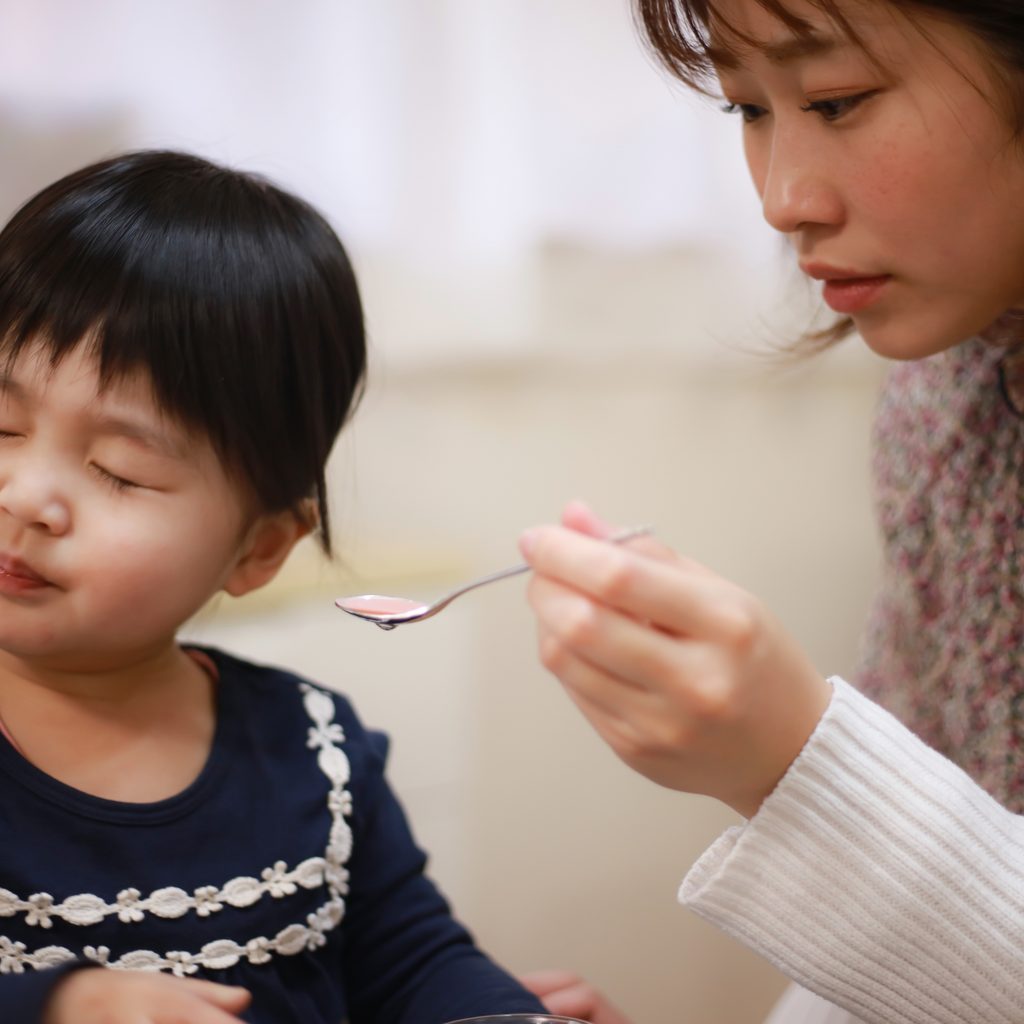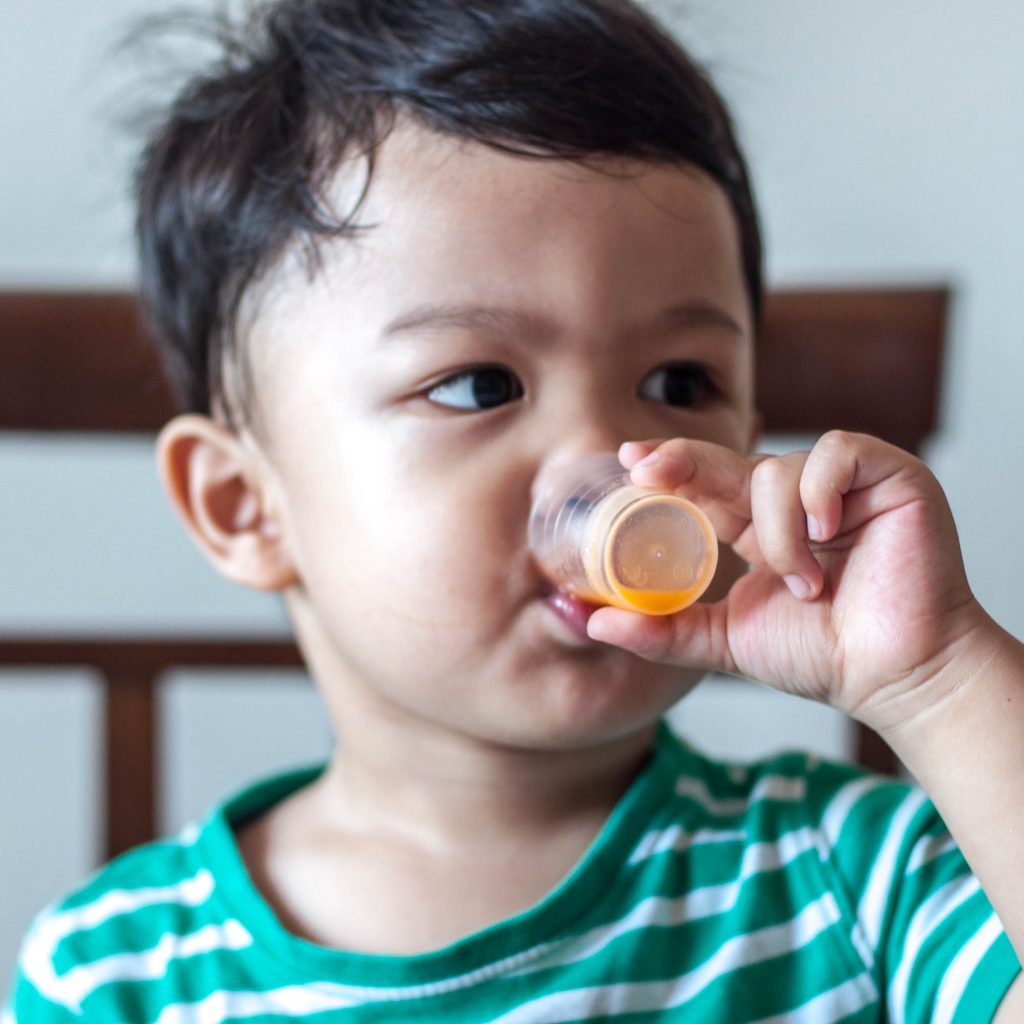A spoonful of sugar may make the medicine go down if you’re Mary Poppins, but if you’re not, you may need a bit of help getting your toddler to take medicine when sick. Let’s face it, there’s nothing worse than seeing your toddler under the weather, except for trying to get the medicine down a reluctant throat. While some over-the-counter remedies try their best to appeal to kids with flavors like bubblegum, grape, and various other fruits, that doesn’t always help.
You don’t have to be a magical singing nanny to get your toddler to take medicine. If you’ve struggled to get your toddler to take medicine there are a few tricks that other parents and experts have tried that may make your life a bit easier.

How do you get a two-year-old to take medicine?
Every parent of a toddler knows that negotiating can be incredibly difficult, especially when your little one has her mind made up about something, so how do you get her to take her medicine if she’s decided she doesn’t want to? What to Expect suggests changing up the delivery, so instead of using a dropper, maybe try a small cup or a syringe. You can also administer the dosage over a period of a few minutes instead of all at once. Drinking a capful of medicine may seem to be a bit too much for some toddlers, so allow your child to take a little bit, maybe followed by a drink or something to eat, then give her a bit more until she’s received the full dosage. You can also let your child have a say in what flavor of medicine she wants (if that medicine comes in different varieties.) Your child may tolerate the grape flavor while the banana flavor can cause a revolt. Some pharmacies will actually add different flavors to their medicines so your child can pick a favorite.
How can I get my toddler to take medicine without spitting it out?
You may think that once you’ve actually convinced your toddler to open his mouth for his medicine that you’ve won the battle, but sometimes kids can decide the minute the meds hit their tongue that they want no part of it and proceed to spit it out. There’s nothing more frustrating than losing an entire dose of antibiotics or other prescription medicine because your child doesn’t like the taste, especially when you know that it’s exactly what he needs to make him feel better. Columbine Family Practice suggests a few tricks to help parents ensure their toddlers actually swallows their medicine. You can camouflage the medicine in food like applesauce or mix it with some juice, or use a dropper to aim the medicine as close to the back of the throat as possible. They also suggest asking your doctor for a different form of the medicine, such as a chewable tablet, if your child refused to take the liquid form.

How can I trick my toddler into taking medicine?
Sometimes it’s necessary to trick toddlers into taking medicine because you know it’s for their own good. Mom Tanya Romo shared a video on Tik Tok showing her tricking her daughter into taking medicine by pretending to have her drink from a juice box. The video has been viewed almost four million times and has earned the praises of parents everywhere!
@_brittanyaromo
As we noted above, sometimes you can mix your child’s medicine with food or drink to trick him into taking it. You should consult your pediatrician before doing so to ensure the medicine can be combined with food or drink, and you need to make sure your child finishes the entire portion so he’s getting the proper dosage of meds.
How do you force medicine down a child’s throat?
Parents never want to have to force their child to take medicine, but sometimes it’s a necessity if a sick toddler simply refuses. If your child won’t take her medicine you may need two adults to give it to her. Pediatric Associates recommends having one adult sit with the child, holding her arms, while the other adult uses a medicine dropper to administer the medicine. Always try to get the medicine as far back near their cheek as possible to ensure your child won’t spit it out. You may have to hold her mouth shut until she swallows. Always follow up with positive reinforcement, a hug, and maybe even a reward.
Giving toddlers medicine can truly be an unpleasant experience but hopefully, as they grow older they’ll realize that the medicine will make them feel better. Explaining to your child the reasons why the medicine is needed, as well as giving options in flavors and the method of administration, can all help make the process go more smoothly.




